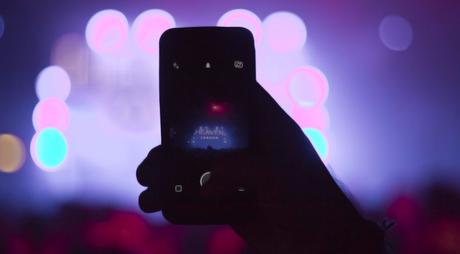It seems that now, more than ever, people are opting to stream media rather than download it. The reasons for this appear to be how easy it is to connect to the internet and the low cost of internet in most places compared to how it was just a few years ago. It has also become a lot cheaper to stream content than it is to buy physical copies of the same content. Take Netflix for example.

You can now get all the movies and TV shows you can watch for about $10 per month compared to about $40 for an HD version of one movie. All that you would require completing the equation is a good, reliable, fast internet connection. In deciding the internet provided to go with, people look at the monthly cost of said subscription; with most prices pegged on the amount of data you are allowed to consumer per month.
How much data do you really need?
In answering this question, you have to look at two things. The first is the type and quality of content you are streaming and two, the website or service that you are streaming from. However, Broadband Choices can help you with this further.
Streaming a Netflix movie or TV episode uses about 300MB per hour for a low-quality stream, 700MB per hour for a Standard Definition stream, 3GB per hour for an HD stream and 7GB for a 4K stream. Consider now the amount of data you need for a Youtube stream. Youtube uses about 1.6MB per minute(about 100MB per hour) for a 240P stream and up to 12MB per minute(750MB per hour) for 1080P streaming.
If you enjoy watching videos on Facebook, you will be glad to know that Facebook videos consume very little data. Facebook videos usually consume as low as 2MB per minute even though they are usually of a medium, watchable quality. You might see those numbers go up especially if you decide to watch High Definition videos on the website, although these are few and far between.
Now, although gaming does not fall into the traditional definition of streaming, it is still an important metric to look at especially for those who prefer gaming over watching TV or movies. Games are getting bigger and bigger; a standard computer game will consume up to 60GB to download. The good thing about games is that, unless you decide to update the game, it will consume very little data. Sometimes as little as 50-100MB per hour.
Now let us jump ship to another non-traditional form of streaming. More and more people are choosing to chat on video rather than call traditionally. If you decide to go with an app such as Skype, you will be surprised to learn that a Skype video call consumers about 360KB per minute which is about 25MB per hour. Do keep in mind that Skype used the highest amount of bandwidth possible to maintain the best picture quality so these numbers might be higher if you have a faster internet connection. Of course, audio calls consume a minuscule fraction of this.
2. Music streaming
Although most people's minds would not jump to music when they hear the word streaming, many do stream a lot of music exclusively. Now, the amount of data you will consume, as with video streaming, will depend on the service and website you are streaming from and the quality of the stream.
As a rule of thumb, the higher the bitrate of the music stream, the better the quality and the higher the amount of data you will consume. Most people settle for a 320kbps stream, which consumes about 144MB per hour, just about 12MB per song.
Spotify streams at 160kbps which is roughly 72MB per hour on their free tier. This is half the quality, and half data usage, you get as a paying subscriber. Apply music on the other hand streams at 256kbps, roughly 155MB an hour.
Although Google Play Music is set to stream at 320kbps, it behaves much like YouTube in that it adjusts this data consumption according to the strength and speed of your connection. Lastly, we have Tidal, a music streaming service offering lossless audio streams. Since the quality and bitrates are much higher, you can expect to consume about 640MB an hour here.
